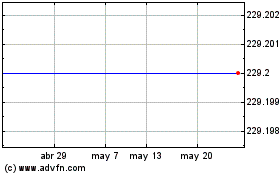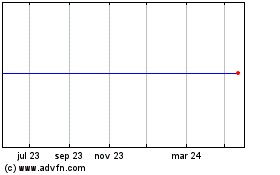Roche four-in-one molecular test for SARS-CoV-2, Influenza A/B
viruses and RSV receives U.S. FDA Emergency Use Authorization
- The test uses highly
sensitive PCR technology, requiring only a single nasal-swab sample
to provide rapid, accurate qualitative detection and
differentiation among four of the most prevalent respiratory
viruses for which differential diagnosis can drive appropriate
treatment.
- Enables healthcare
professionals to make confident clinical decisions and promptly
determine appropriate treatment, with definitive results reported
in just 20 minutes.
- Expands Roche’s extensive
molecular point of care testing portfolio, offering greater
flexibility to meet testing needs amid evolving regional prevalence
of respiratory infections.
Basel, 10 June 2024 – Roche (SIX: RO, ROG; OTCQX: RHHBY)
announced today that the U.S. Food and Drug Administration (FDA)
has granted Emergency Use Authorization (EUA) for its cobas® liat
SARS-CoV-2, Influenza A/B & RSV nucleic acid test, an automated
multiplex real-time polymerase chain reaction (RT-PCR) assay on the
cobas® liat system. Producing results in just 20 minutes on a
compact analyser suitable for most healthcare settings, the test
uses either a single nasopharyngeal or anterior nasal-swab sample
to confirm or rule out infection with SARS-CoV-2, influenza A
virus, influenza B virus and respiratory syncytial virus (RSV).
“Diagnostics play a critical role in the fight against
respiratory illness,” said Matt Sause, CEO of Roche Diagnostics.
“We are proud to provide this innovative test to address the
significant burden placed on healthcare systems. Now, healthcare
professionals will be able to detect and differentiate these
respiratory viruses within a single patient visit, enabling
improved public health outcomes.”
Introducing rapid multiplex PCR diagnostic tests into
near-patient care environments such as emergency departments,
urgent care facilities, and physician office labs has the potential
to provide swift and precise results, expediting clinical
decision-making processes. This approach can help reduce
unnecessary antibiotic usage, facilitate targeted treatment
strategies, and ultimately enhance patient outcomes and healthcare
system efficiency.1-6
According to the U.S. Centers for
Disease Control and Prevention (CDC), respiratory diseases in the
United States reached high levels during the most recent autumn and
winter seasons, with SARS-CoV-2 causing the most emergency
department visits.7 Hospitalisations due to respiratory
illness place a strain on hospitals and can result in delayed
diagnosis and treatment for patients.8 In the 2023-2024
respiratory season, infants, children, and adults ages 65 and older
were observed to have the highest rates of emergency department
visits and hospitalisations caused by SARS-CoV-2, influenza, and
RSV.9,10 Nationwide, the percentage of recent total
deaths due to these respiratory viruses was highest among patients
65 and older.11
The cobas liat SARS-CoV-2, Influenza A/B & RSV nucleic acid
test authorised for emergency use further expands and complements
Roche’s broad portfolio of single and multiplex tests intended to
help diagnose and address the needs of patients presenting with
symptoms of respiratory illness, including the following assays:
cobas® SARS-CoV-2, cobas® Strep A, cobas® SARS-CoV-2 &
Influenza A/B, and cobas® Influenza A/B & RSV for use on the
cobas liat system. In 2025, Roche intends to seek FDA 510(k)
clearance and a Clinical Laboratory Improvement Amendments of 1988
(CLIA) waiver in the United States for the new test, with plans for
commercial launch in other markets worldwide following CE-IVDR
approval.
About the cobas liat SARS-CoV-2, Influenza A/B & RSV
nucleic acid test12
The cobas liat SARS-CoV-2, Influenza A/B & RSV nucleic acid
test is an automated rapid multiplex real-time reverse
transcription polymerase chain reaction (RT-PCR) test intended for
the simultaneous qualitative detection and differentiation of
severe acute respiratory syndrome coronavirus 2 (SARS-CoV-2),
influenza A virus, influenza B virus and respiratory syncytial
virus (RSV) RNA in anterior nasal (nasal) swab and nasopharyngeal
swab specimens collected from individuals with signs and symptoms
of respiratory tract infection consistent with COVID-19 by their
healthcare provider. Clinical signs and symptoms of respiratory
viral infection due to SARS-CoV-2, influenza and RSV can be
similar.
Testing is limited to laboratories certified under the Clinical
Laboratory Improvement Amendments of 1988 (CLIA), 42 U.S.C. §263a,
that meet requirements to perform high, moderate or waived
complexity tests. The cobas liat SARS-CoV-2, Influenza A/B &
RSV nucleic acid test is authorised for use at the Point of Care
(POC), i.e., in patient care settings operating under a CLIA
Certificate of Waiver, Certificate of Compliance, or Certificate of
Accreditation.
Results are for the simultaneous detection and differentiation
of SARS-CoV-2, influenza A, influenza B and RSV viral RNA in
clinical specimens and are not intended to detect influenza C
virus. SARS-CoV-2, influenza A, influenza B and RSV RNA are
generally detectable in nasal swab and nasopharyngeal swab
specimens during the acute phase of infection. Positive results are
indicative of the presence of SARS-CoV-2, influenza A, influenza B
and/or RSV RNA; clinical correlation with patient history and other
diagnostic information is necessary to determine patient infection
status. Positive results do not rule out bacterial infection or
co-infection with other pathogens not detected by the test. The
agent detected may not be the definitive cause of disease.
Negative results do not preclude SARS-CoV-2, influenza A,
influenza B and/or RSV infection and should not be used as the sole
basis for patient management decisions. Negative results must be
combined with clinical observations, patient history, and/or
epidemiological information.
The cobas liat SARS-CoV-2, Influenza A/B & RSV nucleic acid
test is intended for use by trained operators specifically
instructed in the use of the cobas liat system and the cobas liat
SARS-CoV-2, Influenza A/B & RSV nucleic acid test. The cobas
liat SARS-CoV-2, Influenza A/B & RSV nucleic acid test is only
for use under the Food and Drug Administration’s Emergency Use
Authorization.
About the cobas liat system
The cobas liat system combines the cobas liat analyser – an
automated nucleic acid test instrument – with cobas liat assay
tubes to fully automate the testing process, simplify workflows,
and enable healthcare professionals to perform molecular testing in
a variety of near-patient settings with speed, reliability, and
minimal training. The system performs reagent preparation, target
enrichment, inhibitor removal, nucleic acid amplification,
polymerase chain reaction (PCR) amplification, real-time detection,
and result interpretation to automate the detection and
quantification of nucleic acid targets in a biological sample in a
single closed tube. Definitive results are generated in 20 minutes
or less to aid in patient care decisions. The cobas liat
SARS-CoV-2, Influenza A/B & RSV Assay complements existing
tests for SARS-CoV-2 & Influenza A/B, Influenza A/B & RSV,
Strep A, and Cdiff. Assays for other infectious diseases are
currently in development. More information is available at
diagnostics.roche.com. The cobas liat system is commercially
available in select markets.
About Roche
Founded in 1896 in Basel, Switzerland, as one of the first
industrial manufacturers of branded medicines, Roche has grown into
the world’s largest biotechnology company and the global leader in
in-vitro diagnostics. The company pursues scientific excellence to
discover and develop medicines and diagnostics for improving and
saving the lives of people around the world. We are a pioneer in
personalised healthcare and want to further transform how
healthcare is delivered to have an even greater impact. To provide
the best care for each person we partner with many stakeholders and
combine our strengths in Diagnostics and Pharma with data insights
from the clinical practice.
In recognising our endeavour to pursue a long-term perspective
in all we do, Roche has been named one of the most sustainable
companies in the pharmaceuticals industry by the Dow Jones
Sustainability Indices for the fifteenth consecutive year. This
distinction also reflects our efforts to improve access to
healthcare together with local partners in every country we
work.
Genentech, in the United States, is a wholly owned member of the
Roche Group. Roche is the majority shareholder in Chugai
Pharmaceutical, Japan.
For more information, please visit roche.com.
All trademarks used or mentioned in this release are protected
by law.
References
[1] May L, Robbins EM, Canchola JA, Chugh K, Tran NK. A study to
assess the impact of the cobas point-of-care RT-PCR assay
(SARS-CoV-2 and Influenza A/B) on patient clinical management in
the emergency department of the University of California at Davis
Medical Center. J Clin Virol. 2023;68:105597.
doi:10.1016/j.jcv.2023.105597.
[2] Hansen GT, Moore J, Herding E, et al. Clinical decision making
in the emergency department setting using rapid PCR: Results of the
CLADE study group. J Clin Virol. 2018;102:42-49.
doi:10.1016/j.jcv.2018.02.013.
[3] Berry L, Lansbury L, Gale L, Carroll AM, Lim WS. Point of care
testing of Influenza A/B and RSV in an adult respiratory assessment
unit is associated with improvement in isolation practices and
reduction in hospital length of stay. J Med Microbiol.
2020;69(5):697-704. doi:10.1099/jmm.0.001187.
[4] Garvey MI, Wilkinson MAC, Bradley CW, Biggs M, et al. Impact of
a PCR point of care test for influenza A/B on an acute medical unit
in a large UK teaching hospital: results of an observational, pre
and post intervention study. Antimicrob Resist Infect Control.
2019;16;8:120. doi:10.1186/s13756-019-0575-6.
[5] Patel P, Laurich VM, Smith S, Sturm J. Point-of-Care Influenza
Testing in the Pediatric Emergency Department. Pediatr Emerg Care.
2020;36(11):515-518. doi:10.1097/PEC.0000000000002250.
[6] Youngs J, Marshall B, Farragher M, et al. Implementation of
influenza point-of-care testing and patient cohorting during a
high-incidence season: a retrospective analysis of impact on
infection prevention and control and clinical outcomes. J Hosp
Infect. 2019;101(3):276-284. doi:10.1016/j.jhin.2018.11.010.
[7] Centers for Disease Control and Prevention. Public Health and
Surveillance Data. RESP-LENS Interactive Dashboard. Accessed May
28, 2024.
https://www.cdc.gov/resp-lens/dashboard/?CDC_AAref_Val=https://www.cdc.gov/surveillance/resp-lens/dashboard.html
[8] Centers for Disease Control and Prevention. Respiratory
Illnesses. CDC Respiratory Virus Updates. Published January 12,
2024. Accessed January 24, 2024.
https://www.cdc.gov/respiratory-viruses/whats-new/track-hospital-capacity.html
[9] Centers for Disease Control and Prevention. Respiratory
Illnesses. Groups Most Impacted—Emergency Department Visits.
Published February 9, 2024. Accessed February 13, 2024.
https://www.cdc.gov/respiratory-viruses/data-research/dashboard/most-impacted-emergency-department-visits.html
[10] Centers for Disease Control and Prevention. Respiratory
Illnesses. Groups Most Impacted—Hospitalizations. Published
February 9, 2024. Accessed February 13, 2024.
https://www.cdc.gov/respiratory-viruses/data-research/dashboard/most-impacted-hospitalizations.html
[11] Centers for Disease Control and Prevention. Respiratory
Illnesses. Groups Most Impacted—Deaths. Published May 24, 2024.
Accessed May 28, 2024.
https://www.cdc.gov/respiratory-viruses/data-research/dashboard/most-impacted-hospitalizations.html
[12] This product has not been FDA cleared or approved but has been
authorized for emergency use by FDA under an EUA for use by
authorized laboratories certified under the Clinical Laboratory
Improvement Amendments of 1988 (CLIA), 42 U.S.C. §263a, to perform
high, moderate or waived complexity tests. This product is
authorized for use at the Point of Care (POC), i.e., in patient
care settings operating under a CLIA Certificate of Waiver,
Certificate of Compliance, or Certificate of Accreditation. This
product has been authorized only for the detection and
differentiation of nucleic acid from SARS-CoV-2, influenza A,
influenza B, and RSV, not for any other viruses or pathogens. The
emergency use of this product is only authorized for the duration
of the declaration that circumstances exist justifying the
authorization of emergency use of in vitro diagnostics for
detection and/or diagnosis of COVID-19 under Section 564(b)(1) of
the Federal Food, Drug and Cosmetic Act, 21 U.S.C. §
360bbb-3(b)(1), unless the declaration is terminated or
authorization is revoked sooner.
Roche Global Media Relations
Phone: +41 61 688 8888 / e-mail: media.relations@roche.com
Hans Trees, PhD
Phone: +41 79 407 72 58
|
Sileia
Urech
Phone: +41 79 935 81 48
|
Nathalie
Altermatt
Phone: +41 79 771 05 25
|
Simon
Goldsborough
Phone: +44 797 32 72 915
|
Karsten
Kleine
Phone: +41 79 461 86 83
|
Nina
Mählitz
Phone: +41 79 327 54 74 |
Kirti
Pandey
Phone: +49 172 6367262
|
Yvette
Petillon
Phone: +41 79 961 92 50 |
Dr.
Rebekka Schnell
Phone: +41 79 205 27 03 |
|
Roche Investor Relations
Dr. Bruno
Eschli
Phone: +41 61 68-75284
e-mail: bruno.eschli@roche.com
|
Dr.
Sabine Borngräber
Phone: +41 61 68-88027
e-mail: sabine.borngraeber@roche.com
|
Dr.
Birgit Masjost
Phone: +41 61 68-84814
e-mail: birgit.masjost@roche.com |
|
Investor Relations North America
Loren
Kalm
Phone: +1 650 225 3217
e-mail: kalm.loren@gene.com
|
- 10062024_MR_4-in-1_molecular test_en


Roche (LSE:0QQ6)
Gráfica de Acción Histórica
De May 2024 a Jun 2024

Roche (LSE:0QQ6)
Gráfica de Acción Histórica
De Jun 2023 a Jun 2024
